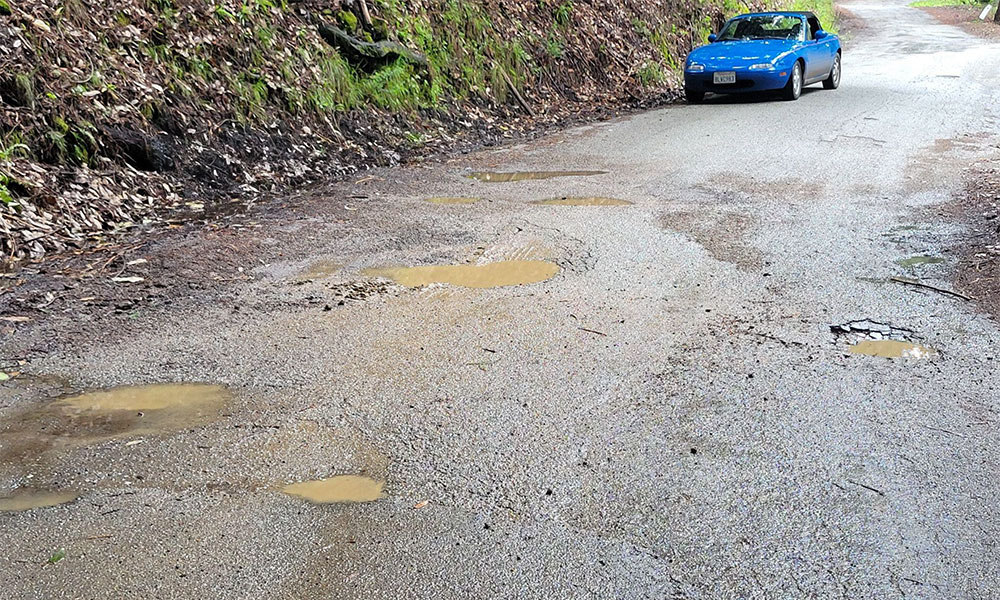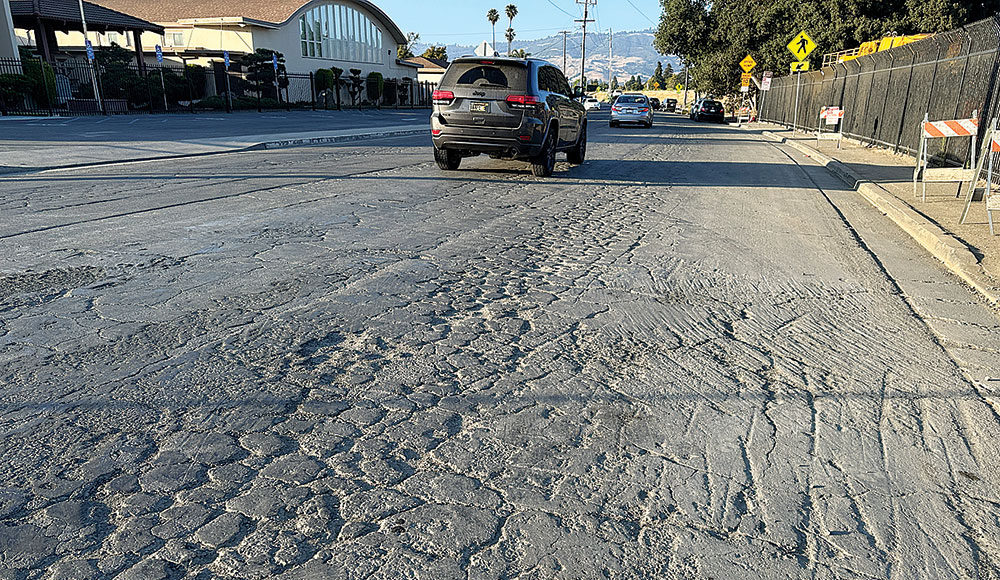The deteriorating state of road conditions in Santa Cruz County’s unincorporated areas is cited as being one of the “five most significant problems facing the County,” according to a Grand Jury Road Report published on June 5.
According to the report, more than 63% of local roads have been categorized as being in poor, very poor or failed condition since November 2019, when the last Pavement Management Program Update was conducted. Local resident complaints are frequently reported to road maintenance agencies along with the Santa Cruz County Department of Public Works and Santa Cruz County Board of Supervisors.
The report focuses on analyzing the effectiveness of Public Works within organizations that overlook county road care, such as the Local Agency Formation Commission (LAFCO), which conducts periodic reviews of road conditions. Throughout the investigation, aspects of the road network—such as the maintenance and repair sector, procedures and programs, and budgeting and funding mechanisms—were also analyzed for their efficacy in serving the community.
The biggest threat to the county’s roads, according to the report, is how the cost of the unfunded backlog of deferred maintenance on roads and culvert systems continues to climb, now reaching approximately $801 million.
Because the lack of reliable financial resources allocated by the General Fund alone does not cover the necessary costs for road and culvert maintenance, the issue of reliance on outside sourcing of funds from Special District 9D, Measure D, Measure K and the Road Maintenance and Rehabilitation Act is also detailed.

According to the report, “Additional funding sources are helpful but wholly inadequate to address the current and projected deferred road and culvert maintenance.” All of these sources, with the exception of Special District 9D, fail to be reliable because the revenue made from them is unrestricted, meaning it is not guaranteed to go anywhere specific.
The Grand Jury concluded the report with 11 findings and eight “recommendations” with an end of the year deadline. These recommendations, carefully worded as suggestions, do not demand anything other than a required response within 90 days.
The first recommendation was for Public Works to complete a report that shows the prioritization of culvert and drainage maintenance to prevent more costly future repairs.
Another recommendation is that Public Works supply LAFCO with detailed reports of the expenditures within Special District 9D—made up of unincorporated areas outside of Watsonville, Santa Cruz, Capitola and Scotts Valley—so the commission can issue a new review.
The Grand Jury also suggested that the Board of Supervisors increase funding to Public Works to allow the annual improvement of at least one local road segment in poor-failing condition. The report further recommended that the Board increase funding, add a consumer price index increase to Special District 9D and continue prioritizing a 10% minimum of Measure K funds to repair failing roads.

The Grand Jury ended by recommending that Public Works “formalize its policy of abandoning pavement restoration on very poor and failed Local roads into a publicly available document in order to inform affected property owners and prospective buyers.”
The recommendation suggests that Public Works make one of two choices: formalize its practices for public view or change the way the department operates. Currently, pavement preservation is prioritized over pavement restoration, meaning streets that are at or above fair condition are maintained more frequently than failing roads are restored, because the cost to do minor repairs is significantly less than a full-on road restoration. Projects that are postponed are labeled as “deferred maintenance.”
In response to the deferred maintenance costs that have reached into the hundreds of millions, the Grand Jury wrote, “The more that is done sooner to maintain our roads, the less we will have to pay later.”
Access to the detailed report is available on the Santa Cruz Grand Jury website under “Our Reports.”













